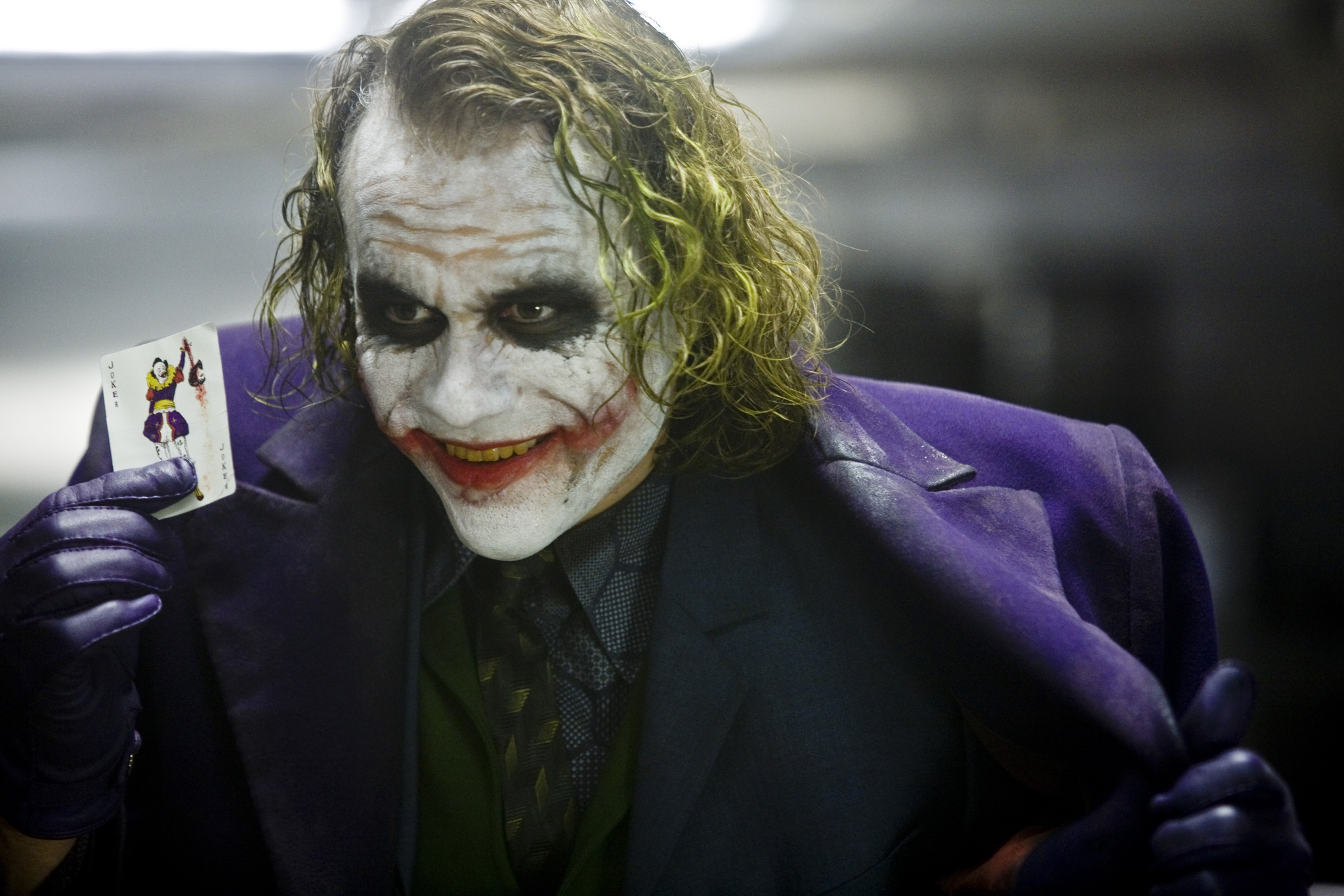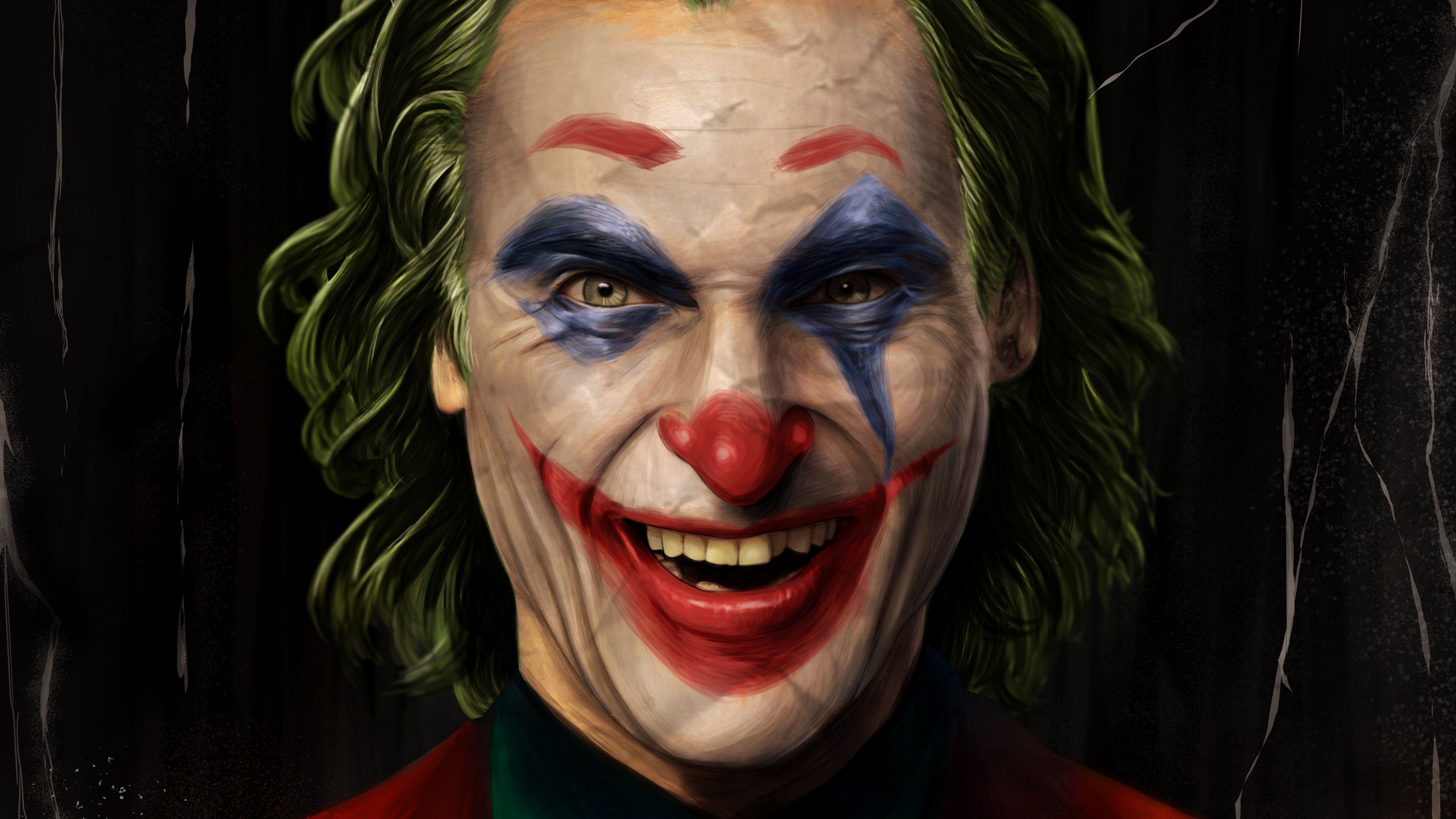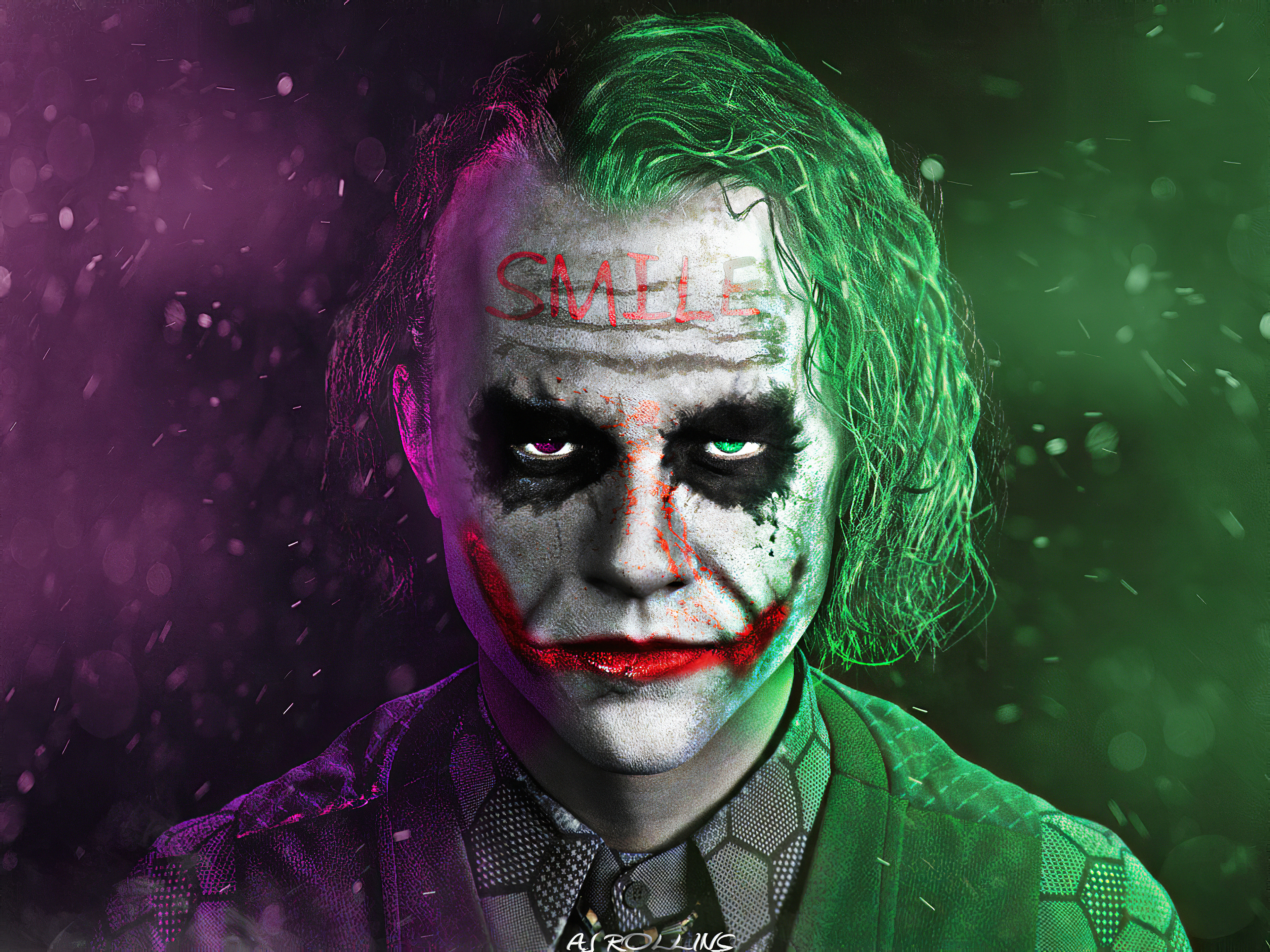Joker For President - A Look At The Campaign Trail
In this period of political unrest, many people find it quite a challenge to settle on the person they want to lead. It seems like finding the just-right person for the job feels harder than ever before. This time around, if you are considering casting your vote for someone who acts like a troublemaker, you might just consider a very unexpected name.
You know, it's actually a bit of a fun detail that a certain well-known character, often seen as a comic book bad guy, once put himself forward for the top job. People have been talking about this idea, and it has popped up in different places, sometimes in very surprising ways. There are even bits of gameplay where this idea shows up, though some parts are locked away from general view.
So, this unusual idea of a "Joker for President" has really captured some imaginations. From online chatter to actual comic book stories, the concept has spread. It has sparked conversations about what it truly means to pick a leader, especially when the choices seem a little out of the ordinary, or perhaps, in some respects, truly wild.
Table of Contents
- The Man Behind the Grin - A Brief Bio of the Joker
- What is the Joker's Platform for President?
- The Joker's Public Appeal - Why Do Voters Listen?
- Is the Joker's Campaign Just a Joke?
- How Does the Joker Appear in Popular Culture?
- Who Else Has Played a Part in the "Joker for President" Idea?
- What Does This Say About Our Politics?
The Man Behind the Grin - A Brief Bio of the Joker
When thinking about a figure like the Joker, it's hard to pin down a clear life story, since he is a character from stories. However, in the context of him making a bid for the highest office, we can look at how he is presented. He is often seen as a person who brings about a great deal of chaos. People who create stories about him often show him as someone who enjoys making things unpredictable. It's almost as if his very nature goes against what most people expect from someone in a position of authority.
In various forms of entertainment, the Joker is shown with a certain look and a way of being that really stands out. He is known for his bright green hair and a wide, unsettling smile that is permanently fixed on his face. His clothing often includes shades of purple, which has become a color people connect with him. You know, his background is typically kept very vague, adding to his mysterious feel.
In one instance, there is a character referred to as "President D," who, in the present, is described as a youthful fellow with extended deep crimson locks and light sky-colored eyes. He wears a violet clothing set with a 'D' badge and pale pink ear decorations. In earlier times, this character was a plump young lad with brief deep crimson strands, a violet top, sky-colored trousers, small skin spots, and a space between his teeth. He was raised with every possession, except for something important, which is not stated. This particular description seems to be a separate, though related, idea from the main "Joker for President" concept, perhaps a different fictional take on a leader with a similar initial.
- White Sexy Top
- Nicole Brooks Sex
- Where Is Angel Reese Going
- Whats The Name Of The New Tyler Perry Movie
- Bjs Images
Personal Details and Bio Data of the Joker (as presented in the "Joker for President" context)
| Detail | Description |
|---|---|
| Known Affiliation | Batman villains, DC Comics universe |
| Political Stance (Proposed) | Anti-establishment, promises to address national debt by taxing wealthy orphans, tough on unauthorized law enforcement acts |
| Public Persona | Disarming way of being funny, vibrant way of being, appealing grin |
| Campaign Materials | Seen in American flag themed clothing, standing near political posters |
| Notable Appearances (Campaign related) | Random showings in city gameplay, comments in a game (called "goldmines"), comic books like "The Man Who Stopped Laughing #7" |
What is the Joker's Platform for President?
When the Joker decides to make a bid for office, he certainly does not hold back on making some very bold statements. He gives his word to cut down the money gaps in the budget. More than that, he aims to cause the national debt to vanish completely. How does he plan to do this, you might wonder? Well, he suggests putting a tax on young people who have inherited a lot of money and whose parents are gone. It's a rather unusual approach, to say the least.
He also makes a commitment to be very firm on unauthorized law enforcement acts. This means he would be strict with people who take the law into their own hands, like certain caped figures we might know. This specific promise, you know, really shows his particular viewpoint on how order should be kept. It's a clear stand against those who operate outside the usual systems.
So, his proposed way of dealing with financial issues and his stance on self-appointed crime fighting are key parts of what he says he would do. These points are quite different from what you would hear from a typical person seeking office. They reflect his somewhat chaotic, yet oddly focused, approach to running things.
The Joker's Public Appeal - Why Do Voters Listen?
It might seem strange that a character known for causing trouble would gain any kind of public support. Yet, the text mentions that the Joker possesses a charming way of being funny. This quality, it seems, helps him connect with people. He has personally greeted hundreds of people who are considering who to vote for. These individuals have observed his sparkling character and his charming expression. It's almost as if his unique qualities draw people in, despite his reputation.
His ability to make people laugh, even at odd moments, appears to be a significant part of his appeal. People are drawn to personalities that are vibrant and memorable, and the Joker certainly fits that description. The idea that someone so unconventional could have a "winning smile" suggests that his charm can indeed win over some people. This, in a way, makes him a very different kind of person to vote for.
Basically, his unusual approach to politics, combined with his peculiar personal magnetism, seems to be what gets him noticed. It's not the usual political talk; it's something else entirely. His presence alone seems to create a stir, making people stop and listen, even if just out of curiosity. This sort of appeal is quite unlike what you would typically expect from someone hoping to lead a country.
Is the Joker's Campaign Just a Joke?
The question of whether the Joker's campaign is serious or simply a big prank often comes up. The very idea of him running for president is, in itself, a bit of a comic drawing. One old sketch from the 1864 election, for instance, showed a "little joker for president." This drawing was not a praising representation of Abraham Lincoln, suggesting that the term "joker" was used to describe someone seen as not fit for office, or perhaps even ridiculous. This indicates that the idea of a "joker" in politics has a long history, not just with this specific character.
In more recent times, people have pondered who would even let such a character run for president. Did anyone not observe that it was the Joker wanting to put himself forward? This line of thinking points to the absurdity of the situation. It raises questions about the judgment of those around him, or perhaps, it highlights a commentary on the political scene itself. You know, sometimes the lines between serious politics and a grand performance can seem a little blurry.
There are also suggestions that the character's appearance in a political context can be seen as a form of social comment. For example, a popular film about a dark hero was regarded as having a certain political lean, with the hero standing for a security stance and the Joker symbolizing something more vague and unpredictable. This suggests that the "Joker for President" idea might be a way for artists and writers to make points about the actual world of leadership and public life, using fiction to reflect reality in a very extreme way.
How Does the Joker Appear in Popular Culture?
The concept of the Joker making a bid for the highest office shows up in many different kinds of popular entertainment. For instance, there are short videos featuring the Joker in a political light, often using voice acting to bring the idea to life. These are often shared on video platforms with tags like "jokershorts" and "voteforme." It's almost like a running gag that people enjoy seeing play out.
In the world of games, the Joker's comments are often seen as very valuable. After leaving a certain orphanage in one game, his remarks about a character named Selina made some players laugh a lot. There are also times when he feels down because his toybox is not being enjoyed. These small moments, in a way, give the character a bit more depth, even when he is being presented in a political light.
Artists also play a role in spreading this idea. There is one piece of art where the Joker is shown positioned in front of posters for a former president, dressed in clothing that looks like an American flag, seemingly making arrangements to seek votes for him. This kind of visual representation helps to solidify the "Joker for President" idea in the public mind. It shows how artists use popular figures to comment on current events, sometimes quite sharply.
Who Else Has Played a Part in the "Joker for President" Idea?
The idea of the Joker in a political role is not something that springs from just one source. Many creative people have contributed to this concept over time. For instance, a comic book called "The Man Who Stopped Laughing #7" has specific people credited for its creation. Matthew Rosenberg penned the story, Carmine Di Giandomenico sketched the pictures, Romulo Fajardo Jr. gave the colors, and Tom Napolitano added the text. These individuals help bring the story of the Joker's political aspirations to life on the page.
Beyond comic books, there are also parody videos that feature the "Joker for President" idea. One such video, "Batman Parody 2 | Joker for President," had a cast of performers. Scott Vogel played Batman, David Lautman was Robin, Steve Saunders took on The Flash, Efi Keren was a henchman, and Juan Perez portrayed the Joker himself. These kinds of fan-made creations show how widely the idea has spread and how people enjoy playing with it.
There are also items for purchase that tie into this theme. For example, a "Joker Talking Bust and Illustrated Book" can be found. This item suggests a market for people who enjoy the character and this particular concept. The fact that such merchandise exists indicates a broader interest in the "Joker for President" notion, moving it beyond just a fleeting thought to something people can actually own and collect. It's really quite interesting to see how these ideas become tangible.
What Does This Say About Our Politics?
The persistent idea of a "Joker for President" might say something about how people feel about current politics. When people find it hard to pick a leader they truly believe in, sometimes the idea of an unconventional, even chaotic, figure can become a topic of discussion. It's almost as if the frustration with traditional choices leads to thinking about very different, or even absurd, alternatives. This concept, you know, might reflect a desire for something completely new, even if that "new" is a bit unsettling.
The mention of "brutally funny cartoons" about a current president's ability to handle things, like the economy or a conflict, also ties into this. When artists use the Joker to comment on real-world leaders, it suggests a certain level of dissatisfaction or a feeling that things are not going as they should. It's a way for people to express their feelings through humor and satire, using a familiar character to make a point. This approach allows for a kind of commentary that might be hard to say directly, but is easier to show through a character like the Joker.
So, the continued appearance of "Joker for President" in various forms of media, from old sketches to modern online content, points to a broader conversation. It suggests that people are looking for ways to make sense of, or perhaps even poke fun at, the sometimes bewildering world of public life and leadership. It's a reflection, in a way, of how people process the choices presented to them in times of political unrest, often through the lens of popular stories and characters.

The Dark Knight - The Joker

5k Joker Joaquin Phoenix 2019 Wallpaper,HD Movies Wallpapers,4k

Joker Smile 4k Wallpaper,HD Superheroes Wallpapers,4k Wallpapers,Images